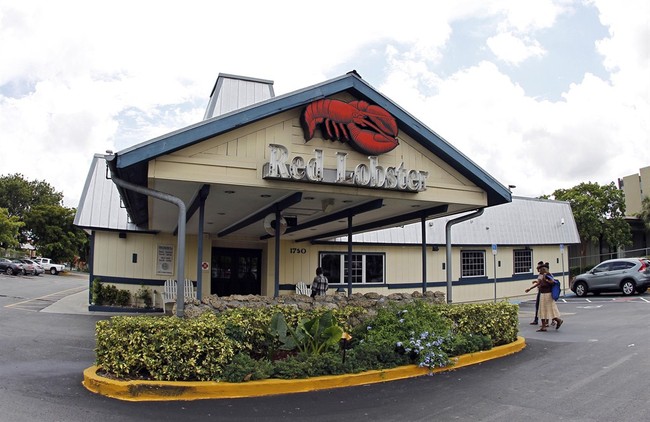
One of the dumbest ways racism and “dog whistles” accusations are made is in regard to food. The activist set on the left is so reactionary in their desire to charge racism that any perceived slight regarding food and race can be elevated to a hate crime. It does not even have to be racist – it just has to feel like intolerance for the accusation to be made.
Currently, a corrections officer might be facing a reprimand because of his comment about a photograph of other officers. A high percentage of those pictured are notably corpulent, and he made a comment about them laying off the biscuits and gravy. A high percentage of those in the picture were also black. So now this officer is facing blowback because it is said the biscuits and gravy crack was racist.
There are convenient and contradictory double standards put into place. If you make comments about a culture regarding food, you are guilty of prejudicial thought and racism. At the same time, that culture can lay claim to the very food that you are accused of stereotyping them for eating. If you say, “Mexicans eat tacos,” you could be racist, all while that dish can be described as Mexican food. Then, if you make tacos and are not of Mexican extraction, you might be accused of appropriating Mexican culture. But then this would also preclude you from frequenting a Mexican restaurant, even if the proprietor is Mexican and trying to earn a living. Then, if you obey this lecture and avoid eating at the establishment, you can be labeled as racially intolerant for avoiding Mexican culture.
Let’s take this to a ridiculous extreme. It has long been the case that associating blacks and watermelons is a racist trope. Today, we are seeing Palestinian sympathizers using watermelon imagery in place of, or in conjunction with, the Palestinian flag. Could we become racist for making that similar fruit connection with Palestinians? Are the protestors considered to be racist towards blacks? This is how stupid all of this racial tie-in with cultures becomes.
It is with this minefield established that we see MSNBC making a stunted observation regarding the current news that the Red Lobster restaurant chain is in financial trouble. There are a variety of influences leading to this reality. (Stephen Greene at our sister site PJ Media has a good explanation of all that has gone wrong.) In an opinion piece on the MSNBC digital portal, sociology professor Robin Autry arrives with what is a now practiced approach — when something bad is happening in the country, it is affecting minorities worse!
Wait; the closing of Red Lobster locations is affecting the black folks, unlike any others?! In a word — yes. “Red Lobster’s Downfall Hits Differently for Black Communities” touts this piece. From there, we get plenty of curious approaches. Take, for instance, the history of the restaurant chain. We learn that the first location opened in Orlando, Florida, in 1968, “just a few weeks before Martin Luther King Jr. was assassinated.” The relevance to this event, and to affordable shellfish entrees and all-you-can-eat shrimp is not clear.
We learn other details as well, such as that the original owner had been very insistent on accepting all races in his eateries and that the current corporation that runs Red Lobster and a number of other chains—Darden Restaurants—has a black CEO.
Black Americans’ taste for Red Lobster followed economic trends, as working- and middle-class diners opted for the pricier $25-$30-per-person casual dining experience over fast-food seafood options like Captain D’s and Long John Silver’s. The restaurant became strongly associated with Black people celebrating special occasions, but even when it was the place for a more regular night out, the chain became one of those Black culture things that people could relate to.
Now, to understand, none of these are details I seek to dispute, but I find it very odd to sit back and declare that Red Lobster is essentially a “black restaurant” in not so many words. Again, applying the double standards discussed at the open, were a white person to declare verbally Red Lobster is a black eating establishment, it would likely lead to some level of backlash. But at MSNBC, it is acceptable to say an American dining institution is a black thing.
Then there was the unintentional slam against the Joe Biden economy that is most amusing. Towards the end, Autry explains some of the economic impacts affecting the restaurant, and in so doing, exposes the issues with Bidenomics.
The rise and slide of Red Lobster, and all the stumbles along the way, parallels a rise and backslide of Black working- and middle-class gains. Black children raised in middle-class households are less likely than ever, and significantly less likely than white children, to remain in the middle class (or ascend) as adults. This is a more acute aspect of the wider “hollowing out” of the middle class: The cost of living outpaces wages, all while bad debt like credit cards, medical bills and student loans grows.
And just as black families are struggling financially, so too is their preferred restaurant, which has stripped away the affordable all-you-can-eat shrimp offers and closing locations. It is never a good thing when an American institution comes under duress, and the concept of an affordable seafood dining experience falling by the wayside is also not a preferred result. That Red Lobster locations closing affects blacks more than anyone else is something I have never considered.
All this time, the only color I associated with the chain was Red. As it stands, that is also the most dominant color seen on its financial spreadsheets.